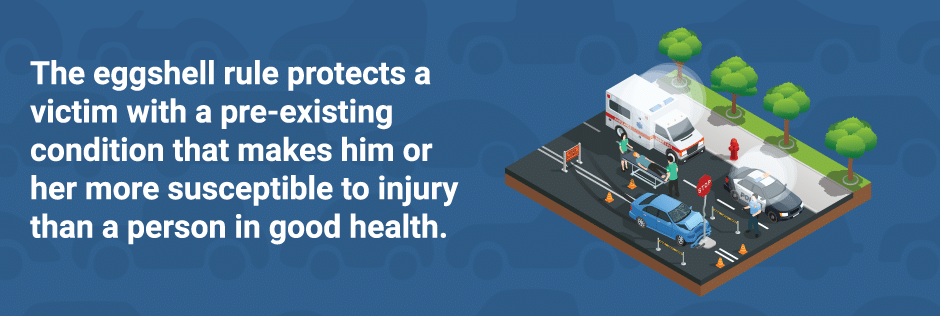Free Courses Sale ends Soon, Get It Now


Free Courses Sale ends Soon, Get It Now



Copyright infringement not intended
Picture Courtesy: https://www.faleslaw.com/eggshell-rule.html
Context: The Supreme Court restores the compensation of Rs 5 lakhs awarded by the district consumer forum in a medical negligence case, emphasizing that the state and central consumer courts incorrectly applied the ‘eggshell skull’ legal principle.
About the eggshell skull rule
|
Plaintiff: A person who starts a legal action against somebody in a court of law |
Principle
Origin
Recent Supreme Court Case
Conclusion
Source:
|
PRACTICE QUESTION Q. What does the 'eggshell skull' rule entail in legal terms? A) It absolves defendants from liability in cases of unforeseen injuries. B) It holds defendants responsible for all injuries caused to a victim, regardless of the victim's pre-existing conditions. C) It limits compensation to victims with delicate skull structures. D) It applies only to cases involving intentional harm. Answer: B |
© 2024 iasgyan. All right reserved